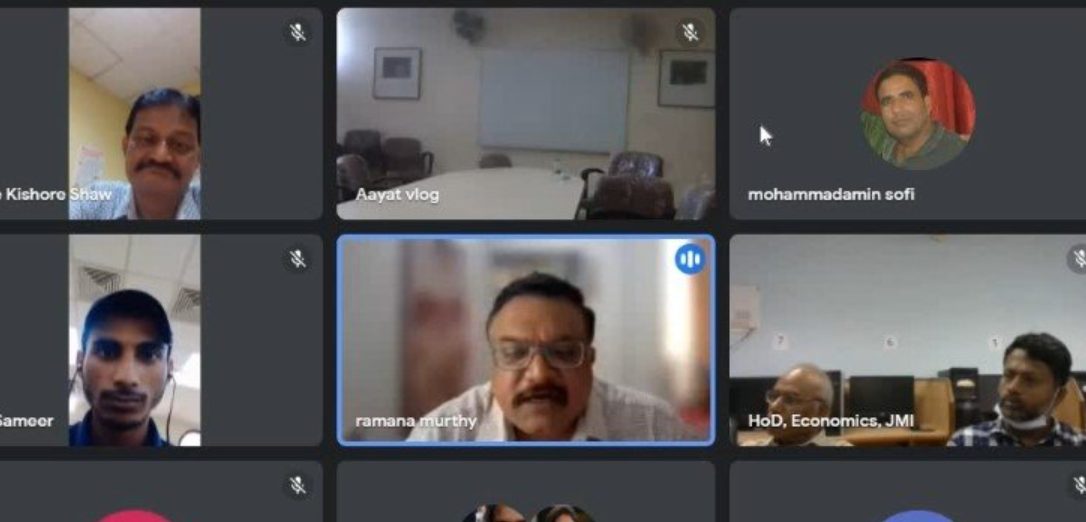
The Department of Economics, Jamia Millia Islamia (JMI) organized a Webinar on Russia-Ukraine War: The End of US Dollar Hegemony by Prof. R.V. Ramana Murthy, Dean, School of Economics, University of Hyderabad. Prof. Asheref Illiyan, HoD, Department of Economics, inaugurated the event by briefly introducing the speaker and thanking him for accepting to interact with the faculty and scholars on an important and contemporary relevant topic. Prof. Bathula Srinivasu has given a brief introduction about the speaker.
Prof. Ramana Murthy, commenced the lecture by sharing insights on the reasons which have shaped the Russia-Ukraine war. Russia being an industrial economy and Ukraine being a agrarian economy, posit huge variations in their basic economic composition. Secondly, Soviet Union has a long history of adversity and enmity. The Russian economy had transited to capitalism on the advice of great institutions such as the IMF. This capitalist nature has led to the political instability in Russia, thereby weakening the Russian economy. Thirdly, Russia has been perceived as a threat to American society. Thus, to overcome this fear of Russian dominance, America too, has contributed to the occurrences shaping the war. Further, the urge to join NATO by Ukraine would further create instability in the economy, thereby worsening the present scenario.
He further explained the overarching economic consequences of this inevitable war. Firstly, numerous sanctions have been imposed on the Russian petroleum gas which forms a crucial part of the major world economies. Secondly, Russia forms a major trading partner of the world. The dependence of nations on the Russian economy for coal and other substances has been severely impacted in the post post-war era, thereby, disrupting the trade balance negatively.
Prof. Murthy concluded his lecture by saying that the US Dollar monopoly may be challenged in coming times as many countries are moving away from US Dollar and he predicted that it will be good for the world. The US itself is making this process quicker.
The lecture was followed by a question and answers by the faculty, scholars and students. The lecture ended with the vote of thanks by Ms. Anam.


